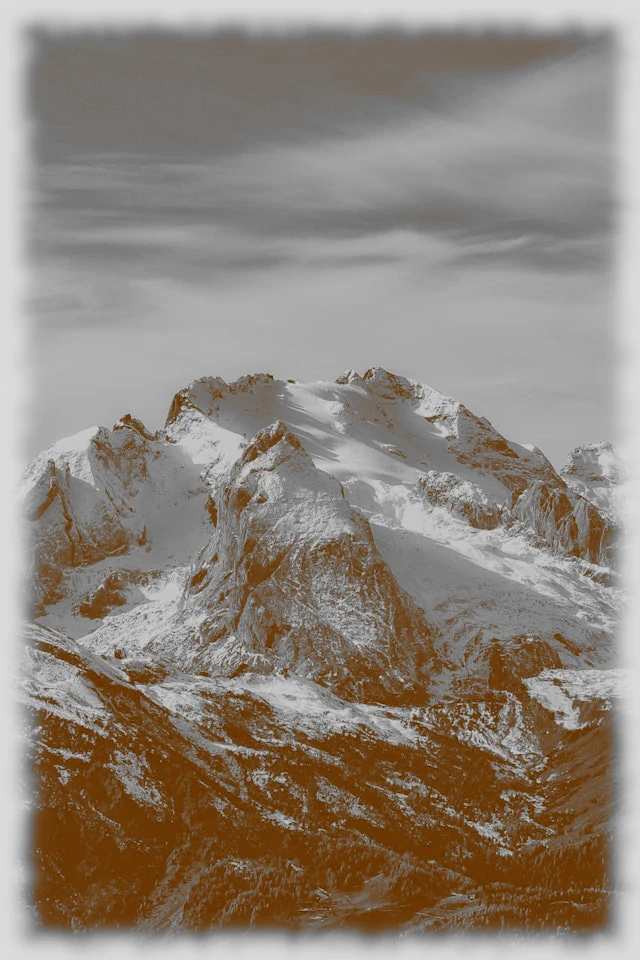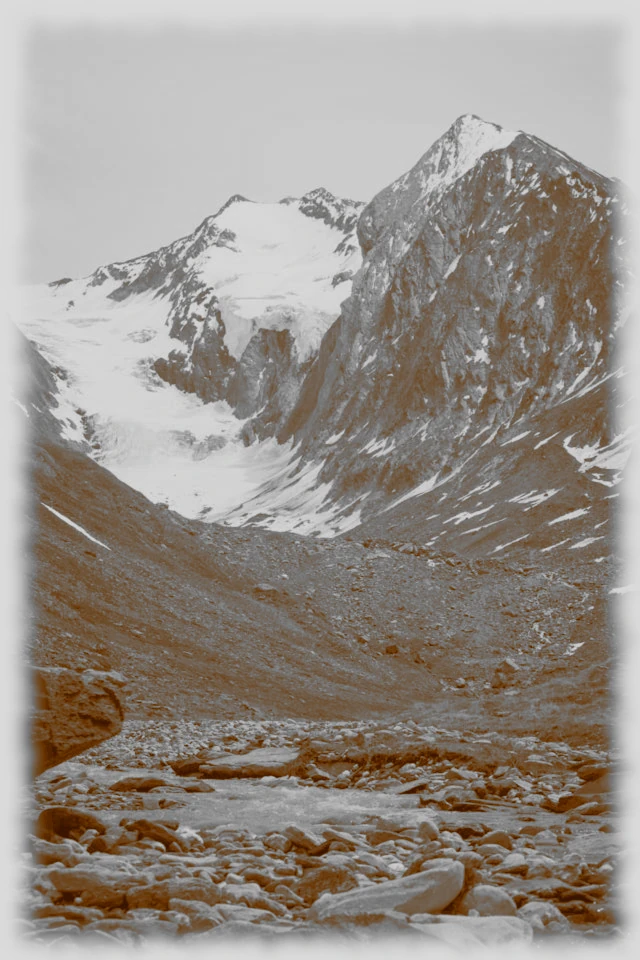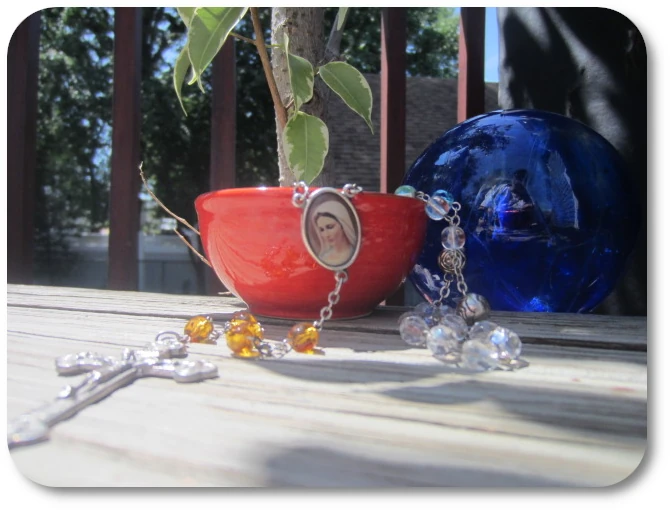- Rosary
- Sorrowful Mysteries
- The Crucifixion
The Crucifixion
The Second Station of the Cross
Jesus is Made to Carry His Cross
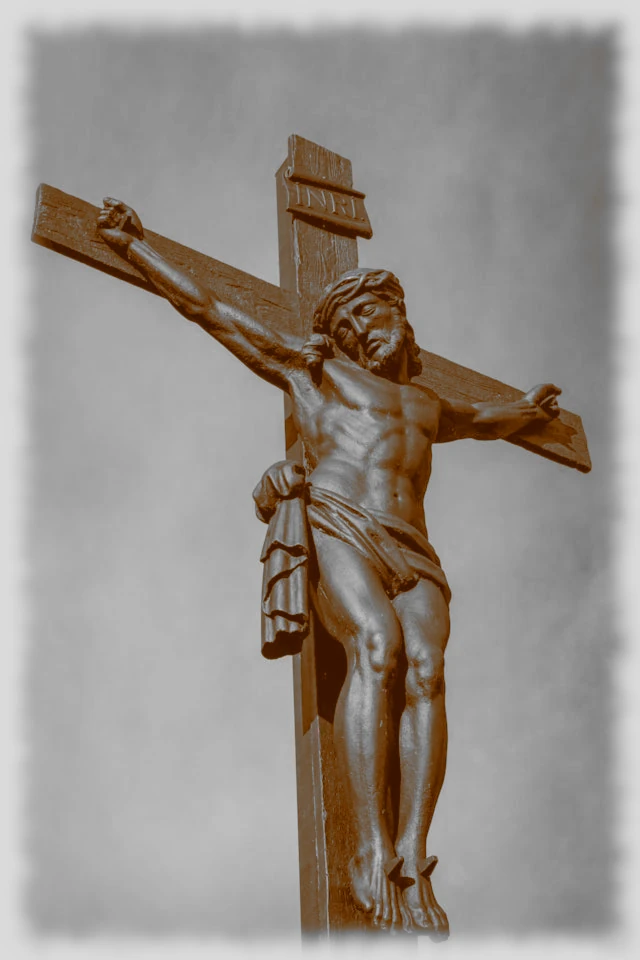
Welcome to a reflection on the crucifixion, a profound moment that changed the course of human history. On this page, we journey through the events surrounding Jesus' sacrifice on the cross—a story of pain, love, and redemption that continues to resonate deeply with us today.
Here, you will encounter narratives that bring to life the darkness that fell over the land, the earthquake that shook creation, and the veil of the Temple torn in two. You will walk with Mary and John as they receive Jesus' tender words from the cross and feel the awe of the Roman soldier who declared, “Truly, this man was innocent.”
But this page is more than just a retelling of events. It’s a space for reflection, inviting you to explore the enduring significance of the crucifixion in your own life. What does it mean to us, years later, that the veil was torn—that we are no longer separated from God’s presence? How do we carry the light of Jesus' sacrifice into our daily lives?
As you read, may these stories inspire you to embrace the message of hope, love, and grace that the crucifixion offers to all of us. Let this page be a seed planted in your heart, growing into a deeper understanding of His boundless mercy.
The Crucifixion
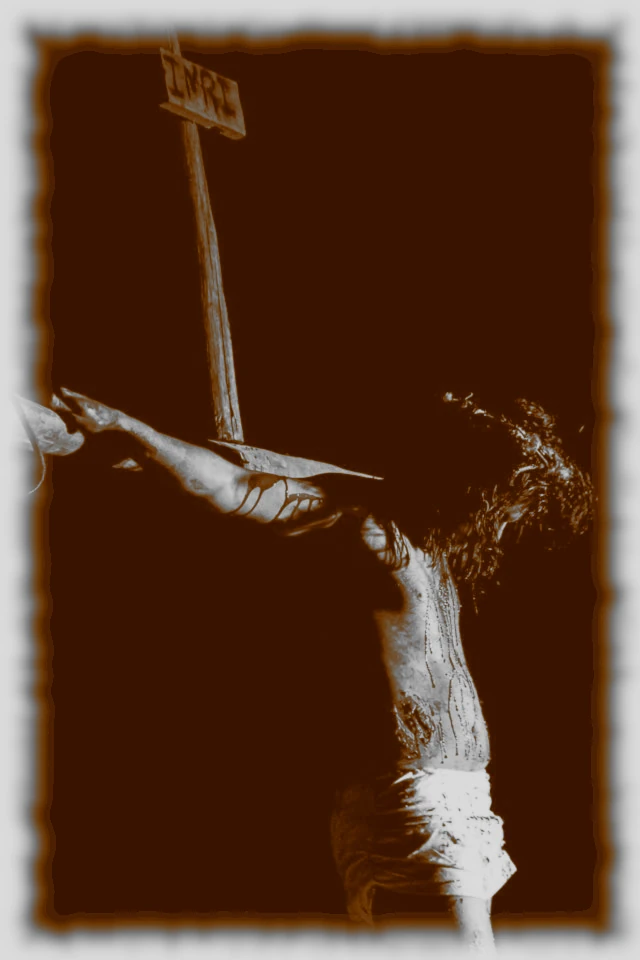
As the crowd gathered on the barren hill known as The Skull, a heavy silence hung in the air. The crucifixion was more than a moment of historical significance—it was a divine collision of love, mercy, and redemption.
Among the onlookers were Mary, his mother, and John, the beloved disciple, their hearts heavy with sorrow yet unwavering in their presence. The Savior, raised upon the cross, bore the weight of humanity's sins, his body pierced and broken but his spirit resolute.
"Father, forgive them; they do not know what they are doing," he whispered, his voice carrying a tenderness that defied the cruelty of the scene. Even in the midst of agony, his words spoke of love and a grace that transcended understanding.
As the hours passed, darkness enveloped the land, an unnatural shadow that seemed to mirror the collective grief of creation itself. Beside him, one of the criminals spoke, "Jesus, remember me when you come into your kingdom." The Savior turned to him, eyes filled with compassion, and promised, "Today you will be with me in paradise." Even in death, hope blossomed.
In his final moments, Jesus looked down to see his mother and John. "Woman, this is your son," he said. And to John, "This is your mother." It was a gesture of care and connection, a reminder that even in sorrow, love finds a way to endure.
And then, with a voice that resonated across the heavens, he cried out, "Father, into your hands I commit my spirit." Bowing his head, he breathed his last, the earth quaking as the veil of the Temple tore in two. In that moment, the barrier between humanity and the divine was shattered, and the world would never be the same.
The crucifixion was not an end, but a beginning—a testament to a love so profound that it conquered even death itself. It calls us to reflect, to remember, and to carry the light of that love into the world.
Truly, He Was Innocent
A Soldier's Awakening
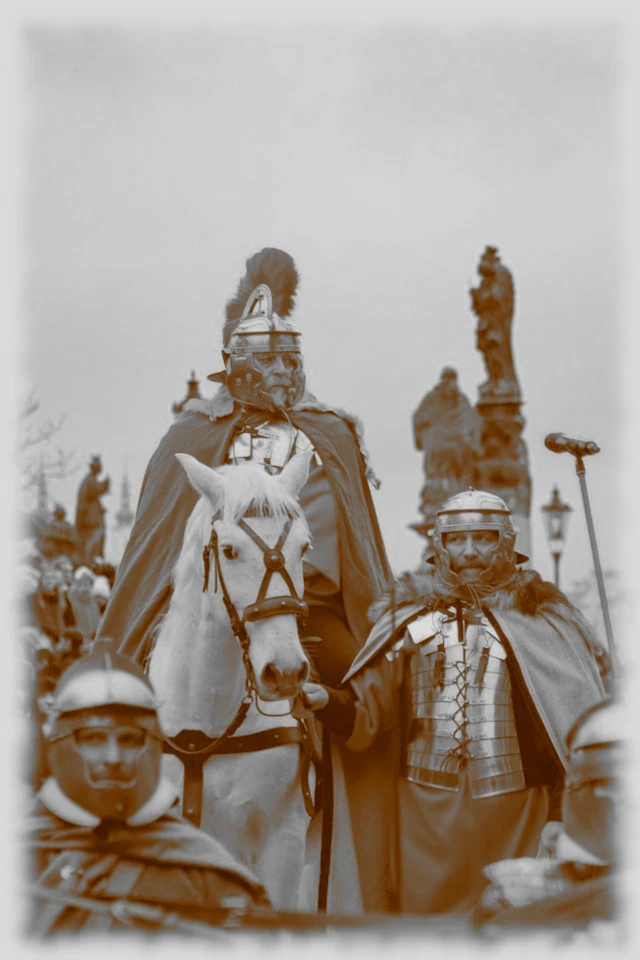
The clang of armor and the murmurs of the restless crowd formed a symphony that echoed in the soldier's ears. Marcus stood among his comrades, a seasoned centurion who had witnessed countless crucifixions. To him, this was another day—another duty carried out in service to Rome. Yet, there was something different about this man on the cross.
Jesus of Nazareth. The name had traveled through whispers and shouts across the land. A healer, a teacher, some said a king. Marcus had dismissed the rumors as idle talk. But now, standing in the shadow of the cross, he found himself unable to look away.
The man hung there, broken in body but not in spirit. His gaze, even in torment, carried a peace that unsettled Marcus. This was no ordinary criminal. As the hours passed, Marcus heard the words spoken from the cross. "Father, forgive them; they do not know what they are doing." It wasn’t a plea for vengeance or an anguished cry. It was forgiveness, extended even to those who had driven the nails.
The sky darkened unnaturally, a heavy shroud falling over the land. Marcus felt a chill that had nothing to do with the weather. The earth trembled beneath his feet as if creation itself was mourning. And in that moment, Jesus cried out, "Father, into your hands I commit my spirit." Then, he was still.
Marcus stared at the lifeless body, his heart heavy with a weight he couldn’t explain. This man had been accused, mocked, tortured—and yet, there was no bitterness in him. No malice. Only love. Only surrender.
Surely, this was no criminal. A realization pierced through Marcus’s being like a spear: "Truly, this man was innocent. Truly, he was the Son of God."
His voice trembled as he spoke the words aloud, a confession in the silence that followed the quake. His comrades turned to look at him, some in disbelief, others in quiet agreement. But Marcus no longer cared for their judgment. Something had shifted within him—a seed planted by the profound truth he had witnessed.
Walking away from the scene, Marcus felt the heavy burden of his role as a soldier of the empire. But he also carried something new—a spark of hope, an awakening to a love that transcended even the power of Rome. He didn’t yet know what this would mean for his life, but he was certain of one thing: he had encountered the divine that day on the hill called The Skull.
The Bond of Love
A Moment Beneath the Cross
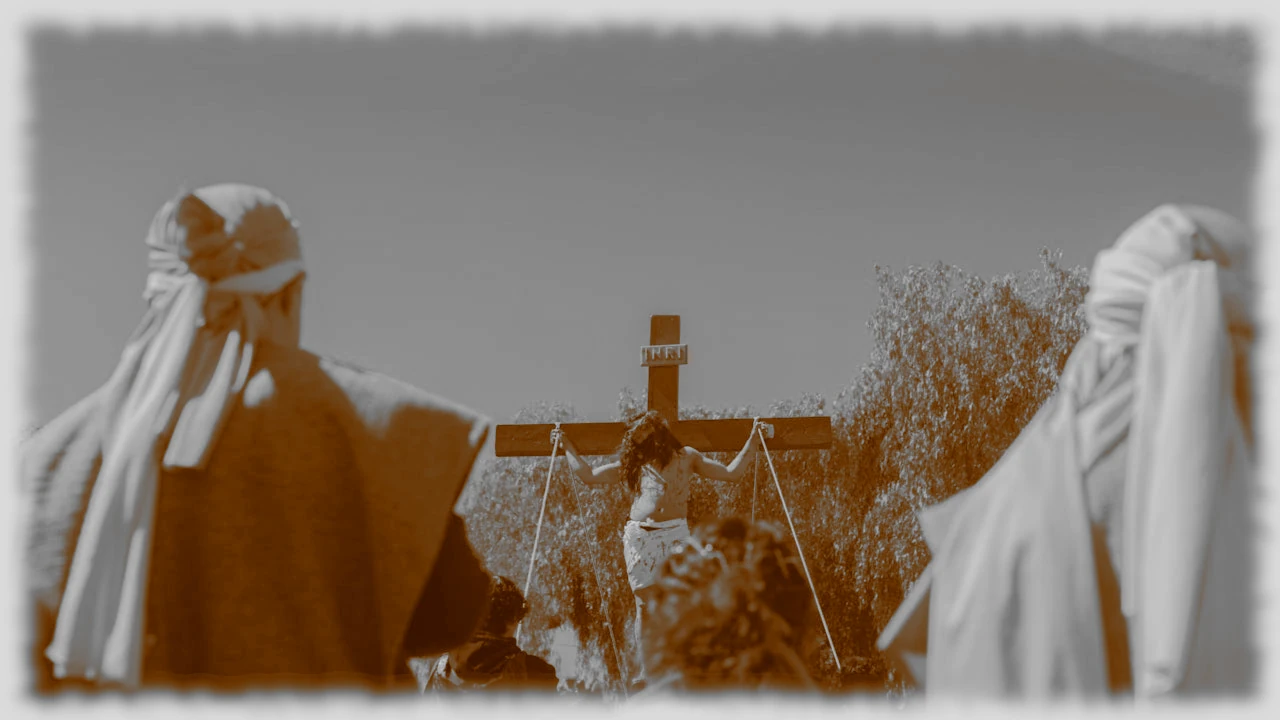
The sun cast long shadows over the hill known as The Skull, its light dimming as if the heavens themselves mourned. Beneath the cross, Mary stood, her heart pierced with sorrow as she gazed upon her Son. Beside her was John, the beloved disciple, his face etched with anguish but steady in his devotion.
The crucifixion was a scene of profound suffering and divine purpose. Jesus, suspended between heaven and earth, bore the weight of the world’s sin. Yet, even in the midst of unimaginable pain, his gaze fell upon his mother and the disciple he loved.
With tender yet steady words, Jesus spoke: "Woman, this is your son." His voice, though strained, carried the profound weight of his intent. Then, turning to John, he said, "This is your mother." In this exchange, Jesus was not simply offering comfort; he was creating a bond, entrusting them to one another as family.
Mary’s tears fell silently, her heart heavy yet filled with a love that transcended her suffering. John, though shaken, understood the depth of this moment. From that day forward, he made a place for Mary in his home, honoring the trust Jesus had bestowed upon him.
The crucifixion was more than an act of sacrifice; it was a moment of divine connection. In the face of death, Jesus ensured that love and care would endure. His words to Mary and John resonate even now, a reminder that in the darkest hours, love remains a guiding light.
The Scriptural Rosary
When they reached the place called The Skull, they crucified him. Luke 23:33
Jesus said, 'Father, forgive them; they do not know what they are doing.' Luke 23:34
One of the criminals crucified with him said, 'Jesus, remember me when you come into your kingdom.' Lk 23:39, 42; Mk 15:32
'Indeed, I promis you,' he replied 'today you will be with me in paradise.' Luke 23:43
Near the cross of Jesus stood his mother and the disciple he loved. John 19:25, 26
Jesus said to his mother, 'Woman, this is your son.' Then to the disciple he said, 'This is your mother.' John 19:26, 27
And from that moment the disciple made a place for her in his home. John 19:27
And a darkness came over the whole land, and the earth quaked; and the veil of the Temple was torn in two. Lk 23:44; Mt 27:51
And Jesus cried out in a loud voice, 'Father, into your hands I commit my spirit.' Luke 23:46
And bowing his head he breathed his last. Jn 19:30; Lk 23:46
With permission from The Scriptural Rosary book written by Joanne & John Bolger
Published and permission from Christianica (America) Center
Earth Tremble - Torn Veil - Darkness Fell
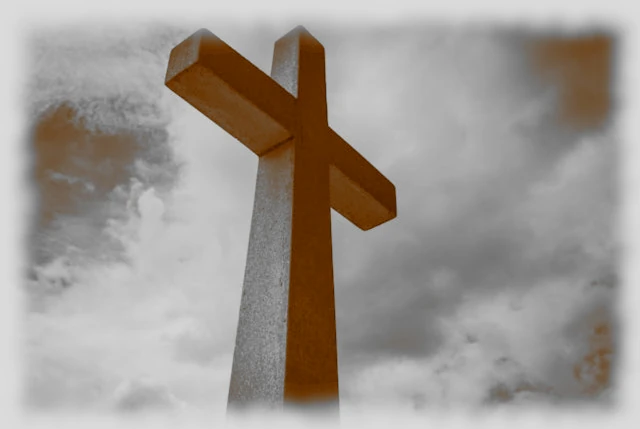
The moment was unlike any other in history. As Jesus took his final breath upon the cross, an eerie darkness fell over the land. The sun's light failed, as if the heavens themselves were in mourning. The crowd, once jeering, fell silent, the oppressive weight of the unnatural gloom settling over their hearts.
And then it came—the earth beneath them trembled violently. Stones split, and the very ground seemed to cry out in lamentation. Amid the chaos, the veil of the Temple, thick and towering, was torn in two from top to bottom. This was no act of man; it was a divine proclamation.
The darkness, the quake, the veil—it all pointed to a profound truth. The crucifixion was not merely the death of a man but the turning point of creation. The veil, which had once separated humanity from the Holy of Holies, was now forever removed. The barrier between God and humanity was gone, broken by the sacrifice of Christ.
For us today, these events echo with enduring significance. The darkness reminds us of the weight of sin and the brokenness of the world, yet it is not permanent. Just as the sun’s light returned, so too does hope to illuminate our lives. The earthquake symbolizes the upheaval of the old order—shaking away the barriers that kept us from God’s presence. It calls us to break free from the chains that bind us, be they fear, doubt, or guilt.
And the torn veil? It speaks directly to our lives now. It invites us into a personal relationship with God, no longer distant but near, intimate, and accessible. It is a call to approach the Creator with confidence, knowing that through Christ, nothing separates us from His love.
In moments of darkness or when life seems to quake beneath us, we can remember the crucifixion and these powerful signs. They remind us that, through Jesus, light conquers darkness, barriers are torn down, and we are never alone. His love continues to bridge the divide, offering us a path to grace and renewal.



